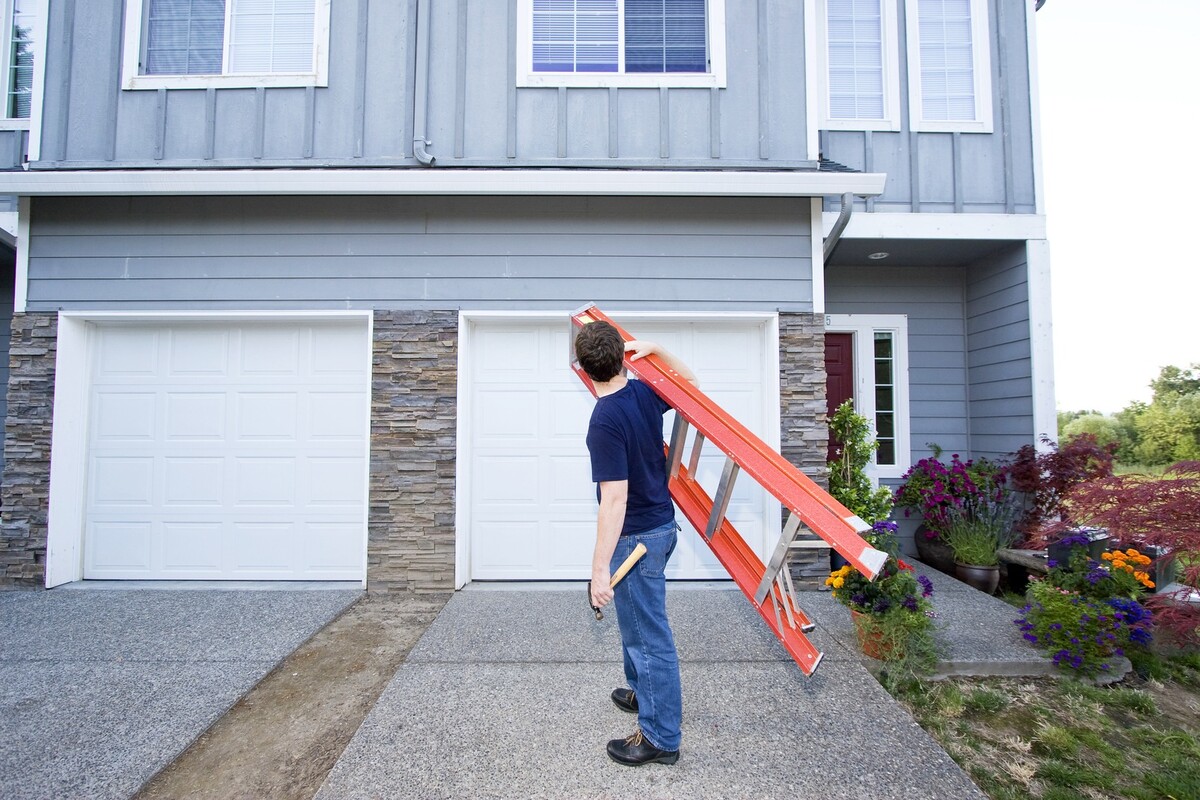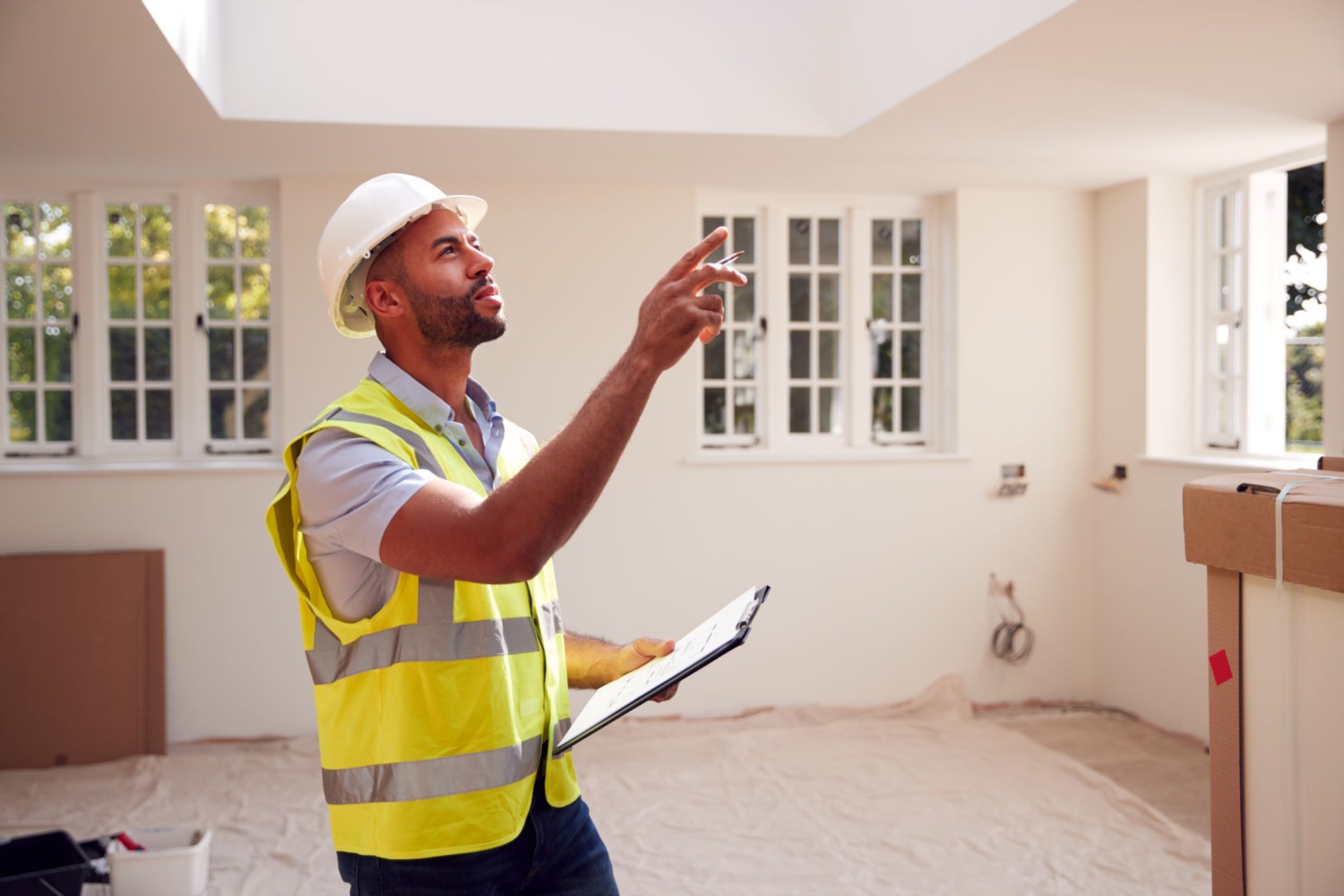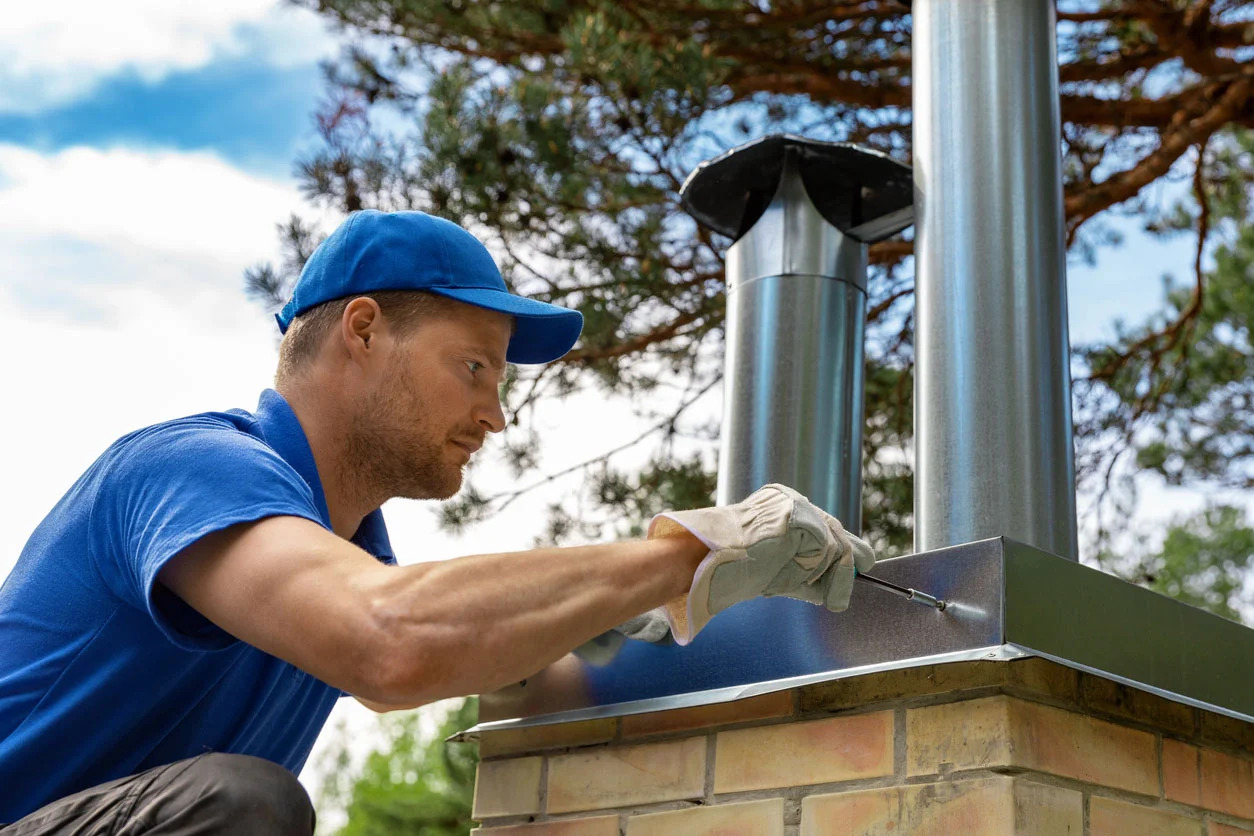Home>Home Maintenance>Who Is In Charge Of Home Repairs During A Land Contract


Home Maintenance
Who Is In Charge Of Home Repairs During A Land Contract
Modified: March 6, 2024
Find out who is responsible for home repairs when you purchase a property through a land contract. Learn about home maintenance responsibilities during a land contract agreement.
(Many of the links in this article redirect to a specific reviewed product. Your purchase of these products through affiliate links helps to generate commission for Storables.com, at no extra cost. Learn more)
Introduction
When it comes to purchasing a home, there are various methods available to buyers. One such option is a land contract, which allows individuals to buy a property without going through traditional financing institutions. In a land contract, the buyer and seller agree to a contract where the buyer pays the seller in installments over a specified period of time.
While land contracts can provide flexibility and convenience, they also present unique responsibilities and considerations, especially when it comes to home repairs. In this article, we will explore who is responsible for home repairs during a land contract and shed light on the roles of both the buyer and the seller in ensuring the maintenance and upkeep of the property.
Key Takeaways:
- Home repairs during a land contract require clear communication and understanding of responsibilities. Both the buyer and the seller must work together to maintain the property and address repair needs promptly.
- Negotiation and open dialogue are crucial for addressing repair issues. Understanding the land contract terms and working together ensures a harmonious homeownership experience.
Understanding Land Contracts
A land contract, also known as a contract for deed or installment land agreement, is a legally binding agreement between a buyer and a seller for the purchase of a property. Unlike a traditional mortgage where the buyer obtains financing from a bank or lending institution, the buyer in a land contract pays the seller directly in installments over a predetermined period of time.
This arrangement can be beneficial for buyers who may not qualify for a traditional mortgage due to credit issues or other financial constraints. It allows them to secure a home without having to go through the rigorous approval process of a bank.
Under a land contract, the buyer gains equitable interest in the property while the seller retains legal title until the contract is fully paid. This means that although the buyer occupies and maintains the property, the seller still technically owns it until the contract is fulfilled.
It’s important to note that land contracts vary depending on state laws and individual agreements. The terms and conditions, including the duration of the contract, the interest rate (if any), and the responsibilities of both parties, are all outlined in the contract itself. Understanding the specifics of a particular land contract is crucial for both the buyer and the seller.
Responsibilities of the Buyer
As the buyer in a land contract, you have certain responsibilities when it comes to home repairs and maintenance. These responsibilities will be outlined in the contract, but here are some general obligations you can expect:
- Regular Maintenance: It is the buyer’s responsibility to keep the property in good condition and perform routine maintenance tasks such as cleaning, landscaping, and minor repairs. This includes tasks like mowing the lawn, cleaning gutters, and changing air filters.
- Timely Payments: One of the primary obligations of the buyer is to make timely payments to the seller as outlined in the contract. These payments typically include both the principal amount and any interest agreed upon.
- Reporting Major Issues: If you encounter any major issues with the property, such as plumbing leaks, electrical problems, or structural damage, it is your responsibility to inform the seller promptly. Prompt reporting is essential to prevent further damage and to address the issues in a timely manner.
- Minor Repairs: In most cases, the buyer is responsible for minor repairs and maintenance tasks. These may include fixing leaky faucets, replacing light bulbs, and repairing cosmetic damages that do not significantly impact the structure or functionality of the property.
- Compliance with Local Regulations: The buyer must comply with all local regulations regarding property maintenance, zoning, and safety. This includes obtaining necessary permits for renovations or repairs that require them.
It is crucial to thoroughly read and understand the terms of the land contract before entering into the agreement. The contract may outline specific responsibilities in more detail or allocate certain repairs and maintenance tasks to the seller. It is important to communicate and clarify any ambiguities with the seller to ensure a smooth and harmonious homeownership experience.
Responsibilities of the Seller
As the seller in a land contract, you also have certain responsibilities when it comes to home repairs and maintenance. These responsibilities may vary depending on the terms of the contract, but here are some general obligations you can expect:
- Disclosing Property Condition: It is the seller’s responsibility to disclose any known issues or defects with the property to the buyer. This includes informing the buyer about any past or ongoing repairs, structural problems, pests, or other issues that may impact the property’s value or livability.
- Structural Repairs: In most cases, the seller is responsible for major structural repairs that are necessary for the safety and habitability of the property. This may include repairs to the foundation, roof, plumbing, electrical systems, or any other essential components of the home.
- Compliance with Local Building Codes: The seller must ensure that the property meets all applicable building codes and regulations. If repairs or upgrades are required to bring the property up to code, it is generally the responsibility of the seller to address these issues.
- Resolving Disclosed Issues: If the seller has disclosed any known issues with the property, they are typically responsible for addressing those issues before transferring the property to the buyer. This may involve repairing or remedying the problems or providing the buyer with a credit or reduction in the purchase price to compensate for the repairs.
- Transfer of Property in Good Condition: The seller is obligated to transfer the property to the buyer in good condition, free from any liens or encumbrances, and in compliance with any agreed-upon terms outlined in the land contract.
It is important to consult the specific terms of the land contract to fully understand the seller’s responsibilities. The contract may outline additional obligations and repair provisions that need to be fulfilled. Clear communication between the buyer and the seller is essential to ensure that both parties are aware of their respective responsibilities and can fulfill them accordingly.
During a land contract, the buyer is typically responsible for home repairs and maintenance, as they are considered the equitable owner of the property. It’s important to clarify these responsibilities in the contract.
Home Repair Negotiations
When it comes to home repairs during a land contract, negotiations between the buyer and the seller play a crucial role. These negotiations determine how repair issues are addressed, who is responsible for the costs, and how disagreements are resolved. Here are some key factors to consider when negotiating home repairs:
- Inspection Reports: It is common for buyers to conduct a home inspection before finalizing the land contract. The inspection report provides valuable information about the condition of the property, including any repairs or maintenance tasks that may be needed. This report can serve as a starting point for negotiations regarding repairs.
- Contractual Provisions: Review the land contract carefully to understand any provisions related to repairs and maintenance. The contract may outline specific responsibilities for both the buyer and the seller, including procedures for handling repair requests and allocation of repair costs.
- Repair Allowances: In some cases, the seller may provide a repair allowance or credit to the buyer to cover the cost of necessary repairs. This can be negotiated as part of the purchase agreement and can help alleviate the financial burden on the buyer when addressing repair issues.
- Professional Estimates: If there are significant repairs or disputes concerning the extent or cost of repairs, obtaining professional estimates from trusted contractors can provide objective information to facilitate negotiations. These estimates can help determine fair and reasonable solutions for resolving repair issues.
- Timeframe for Repairs: Negotiate a reasonable timeframe for completing repairs. This is particularly important for repairs that may significantly affect the habitability or value of the property. Establish clear deadlines to ensure that repairs are completed in a timely manner.
- Documentation of Repairs: Keep records of all repair agreements, work orders, receipts, and any other relevant documentation. This documentation will be useful for future reference and to establish a record of repairs that have been completed.
Open and transparent communication is crucial during home repair negotiations. Both the buyer and the seller should approach negotiations with a willingness to find fair and practical solutions. By working together and understanding each other’s perspectives, it is possible to reach agreements that satisfy both parties and ensure the proper maintenance and upkeep of the property.
Factors to Consider for Repairs
When addressing repairs during a land contract, it is important to take several factors into consideration. These factors can influence the extent and urgency of repairs, as well as the allocation of responsibility and costs. Here are some key factors to consider:
- Safety and Habitability: Assess the repairs based on their impact on the safety and habitability of the property. Repairs that affect the structural integrity, electrical systems, plumbing, or other essential components should take precedence to ensure the well-being of the occupants.
- Timing and Urgency: Consider the urgency of the repairs. Some repairs may need immediate attention to prevent further damage or hazards, while others may be less time-sensitive. Prioritize repairs based on their time sensitivity and allocate resources accordingly.
- Cost and Budget: Evaluate the costs associated with the repairs. Determine if the repairs fall within the budget of the buyer or the seller, or if additional negotiations or financial arrangements are necessary. Balancing costs with the importance of the repair is essential.
- Condition at Purchase: Consider the condition of the property at the time of purchase. If certain issues were known and disclosed prior to the land contract, it may impact the responsibility for repairs. Discuss any pre-existing conditions and their implications on repair obligations.
- Shared Responsibility: In some cases, there may be repairs that require shared responsibility between the buyer and the seller. This could be stipulated in the land contract or agreed upon during negotiations. Collaborate to determine how these shared repairs will be handled.
- Long-Term Planning: Consider the long-term implications of repairs. Some repairs may be temporary fixes, while others may require long-term solutions. Plan accordingly to ensure that repairs are done in a sustainable and durable manner.
Each land contract is unique, and the specific terms and circumstances will influence the factors to consider for repairs. Open and honest communication between the buyer and the seller is essential to assess these factors and come to mutually agreed-upon solutions that address repair issues effectively.
Disputes and Conflict Resolution
While it is always preferable to have open communication and reach amicable agreements regarding home repairs during a land contract, disputes can still arise. When conflicts occur, it is important to have an understanding of how to navigate and resolve these issues. Here are some steps to consider during disputes and conflict resolution:
- Communication: Maintain open and constructive communication with the other party. Clearly express your concerns, explain your perspective, and listen to the other party’s point of view. Try to find common ground and mutually agreeable solutions.
- Review the Land Contract: Carefully review the land contract to identify any clauses or provisions that pertain to the specific dispute. Understanding the contractual obligations can provide clarity on rights and responsibilities for repairs.
- Mediation: If direct negotiation proves challenging, consider engaging a neutral third party to mediate the dispute. A trained mediator can facilitate discussions and help the parties find common solutions that are fair and practical.
- Legal Assistance: If the dispute cannot be resolved through negotiation or mediation, seeking legal assistance may be necessary. Consult with an attorney who specializes in real estate or contract law to protect your rights and navigate the legal processes involved.
- Document Everything: Keep thorough records of all communication, agreements, repair requests, and any other relevant documentation. This documentation will be essential in resolving disputes and providing evidence if legal action becomes necessary.
- Seek Professional Opinions: In situations where there are disagreements about the severity or cost of repairs, consider obtaining professional opinions from experts in the relevant fields. Their expertise can help provide objective analysis and guidance for resolving the dispute.
- Arbitration or Court Proceedings: In some cases, when all other options fail, arbitration or court proceedings may be needed to resolve the dispute. This should be considered as a last resort, as it can be time-consuming and costly for both parties.
It is important to approach disputes with a mindset of finding fair and equitable resolutions. By maintaining open lines of communication, seeking professional guidance when needed, and being willing to compromise, it is possible to navigate conflicts and find practical solutions that uphold the interests of both the buyer and the seller in the land contract.
Conclusion
Home repairs during a land contract require clear communication, understanding of contractual obligations, and a willingness to find mutually beneficial solutions. Both the buyer and the seller have responsibilities when it comes to maintaining and repairing the property. By understanding these responsibilities and considering factors such as safety, timing, cost, and long-term planning, potential conflicts can be minimized.
Negotiation and open dialogue are key when addressing repairs, and having a thorough understanding of the land contract will help facilitate these discussions. Working together to assess repair needs, reach agreements, and fulfill obligations ensures a harmonious homeownership experience for both parties.
In the event of disputes, it is important to approach them in a constructive and solution-oriented manner. Through communication, mediation, and, if necessary, legal assistance, conflicts can be resolved in a fair and just manner.
Remember, each land contract is unique, and it is important to carefully review the terms and conditions to fully understand the rights and responsibilities of both the buyer and the seller. By approaching home repairs with transparency, cooperation, and a commitment to resolving issues, the buyer and the seller can maintain a positive working relationship and ensure the proper maintenance and upkeep of the property.
In summary, navigating home repairs during a land contract requires mutual understanding and collaboration. By addressing repairs in a fair and responsible manner, both the buyer and the seller can uphold their obligations and create a healthy and thriving home environment.
Frequently Asked Questions about Who Is In Charge Of Home Repairs During A Land Contract
Was this page helpful?
At Storables.com, we guarantee accurate and reliable information. Our content, validated by Expert Board Contributors, is crafted following stringent Editorial Policies. We're committed to providing you with well-researched, expert-backed insights for all your informational needs.















0 thoughts on “Who Is In Charge Of Home Repairs During A Land Contract”